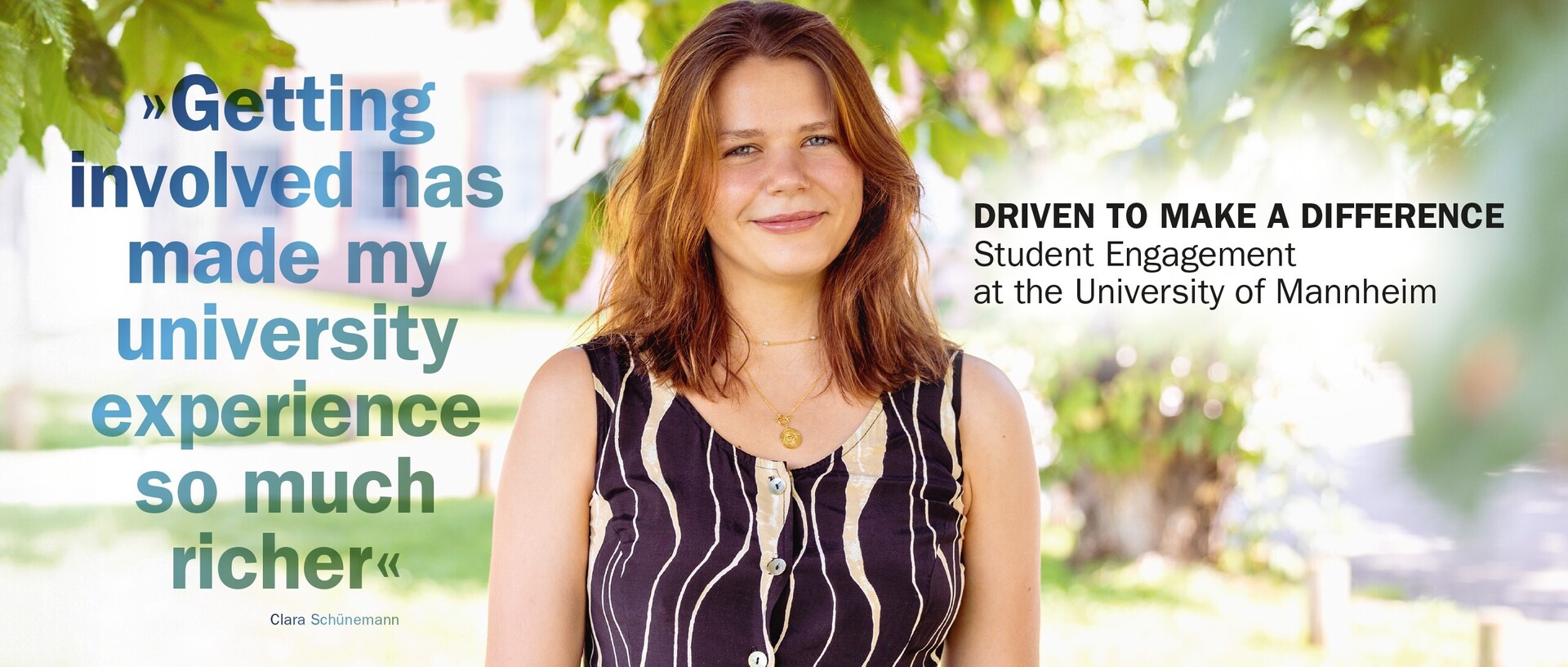A Founder-Turned-Problem-Solver
Starting your own business is a dream for many students. Robert Bach has done it. For seven years, the former Mannheim business student served as co-founder and CEO of Coffee Circle, an online coffee retailer. In 2017, he brought this experience to “Beam,” a company builder that provides entrepreneurs with a platform to build their own logistics startups.

In his daily work, Mannheim alumnus Robert Bach is focused not so much on ideas but on problems. “Our workflow is special: We identify problems in the logistics world and check whether these problems are urgent and important to a large number of potential corporate clients. If so, we launch a new company,” he says, summarizing his approach.
Since 2017, Bach has served as managing director of Beam, an independent Berlin-based company builder within the BEUMER Group. Its mission: to launch start-ups that address the logistical problems of corporate clients using software solutions. “In the B2B sector, where businesses serve other businesses, it’s all about problem-solving. In our case, the problems are so large that it is worth building a company together with interested founders to address them,” he explains.
The 43-year-old sits in his office in the German capital, bursting with energy when talking about his work. After studying business administration at the University of Mannheim from 1999 to 2006 and then working for three years in a strategy consulting firm, he moved to Berlin in 2009. He still lives there with his wife and two children.
Identifying counterfeit goods
One successful startup that Bach’s company has built is Countercheck. “Postal companies are a large customer group for the BEUMER Group. The startup has created a monitoring technology for them to help take counterfeit goods out of circulation,” says Bach. Depending on its dimensions, packaging material, stickers and sender, each parcel is assigned a probability of containing counterfeit. If the probability is high enough, employees will check the parcel. “Counterfeit goods can be really dangerous, especially in the pharmaceutical or automotive industries. Countercheck is a prime example of the relevance of our startups,” the alumnus says proudly.
Over the past seven years, Bach and his team have launched ten startups. In each case, Beam provides the founders not only with financial support but also with contacts or consulting services. “I am very satisfied with what we have achieved so far,” he concludes.
Bach calls himself a startup investor. In that role, he can draw on a wealth of personal experience – after all, in 2010, he was at a similar point. With two friends, he co-founded Coffee Circle, a Berlin start-up specializing in selling high-quality coffee online. “To be honest, we didn’t know a thing about it,” says Bach with a laugh. “We had no idea about coffee roasting and tasting, nor about online marketing or how to build a company. But it still felt good because we were confident enough to just give it a shot.”
Until Bach decided to change careers in 2017 and to join Beam, he and his two co-founders spent a lot of time transforming their idea into a successful company. “There wasn’t much free time,” he admits. “I was a workaholic for sure, working up to 14 hours a day. But this was about our own company, whose future was in our own hands.”
Lectures and Mannheim student interns
During his time with Coffee Circle, the 43-year-old frequently returned to his alma mater, the University of Mannheim. In regular lectures, he shared the lessons he learnt in the startup world with students – especially his adventures in online marketing, which was still a new field at the time.
“On the one hand, I wanted to give back to the university because of the opportunities it gave me through my business degree. On the other hand, I wanted to do something for myself in a way because I knew: If my lecture inspires someone to apply for a job with us, we’ll be sure to get competent staff,” Bach explains. And indeed, Coffee Circle hired several Mannheim students for an internship, some of whom returned to the company after graduation to continue working there.
When it comes to his own student days in Mannheim, Bach has fond memories: “The business administration and economics programs in Mannheim are top-notch. But I also loved all the other opportunities and the people I met, some of whom I’m still friends with today. And the Schneckenhof parties, of course.” In terms of career preparation, it was above all Mannheim’s theory-driven approach to management that proved useful because “it helped me develop my capacity for abstract and structured thinking.”
Anyone who, like Bach, is bold enough to start their own business should, in his opinion, ask themselves the one question that is still at the forefront of his own daily work: What is the core problem? “It is important to think about why there is still no solution to it,” he says. “If you are working on the wrong problem or one that is only perceived to be a problem, then any subsequent decision is irrelevant. Once that is clear, you can start your business.”
Text: Jessica Scholich / August 2024
